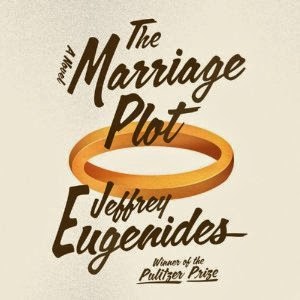| Ready Player One By Ernest Cline Rating |
First Sentence "Everyone my age remembers where they were and what they were doing when they first heard about the contest." |
| Publisher's Description: In the year 2044, reality is an ugly place. The only time teenage Wade Watts really feels alive is when he's jacked into the virtual utopia known as the OASIS. Wade's devoted his life to studying the puzzles hidden within this world's digital confines—puzzles that are based on their creator's obsession with the pop culture of decades past and that promise massive power and fortune to whoever can unlock them. But when Wade stumbles upon the first clue, he finds himself beset by players willing to kill to take this ultimate prize. The race is on, and if Wade's going to survive, he'll have to win—and confront the real world he's always been so desperate to escape. |
|
Dear Reader, This book is one of my top ten favorites. I listened to it on Audible. It was narrated by Will Wheaton who played Wesley Crusher on the 1980s-90s Star Trek: The Next Generation. This book is a geek-fest for anyone who relished and rolled around in their youthful obsessions. Most interestingly the plot surrounds the history of video gaming. It also takes place in a future dystopian version of the world. I like that Cline make the destruction of the eco-system as the reason why the world is so messed up. Plausible and important to continue to bring the fore-front of readers minds'. I also love that he has virtual reality as the world in which everyone chooses to live their life. With the way that our current world is so engrossed in our technology it makes evolutionary sense that we will end up inside the technology. Those who have ended up on the outskirts of the cool crowd and who played (or still play D&D) and embraced their nerdiness, can completely relate to the main character, Wade Watts/Parzival. I learned so much about how video games evolved since Cline used-semi-historical fiction to build the world of Ready Player One. I also enjoyed the love story between Parzival and Art3mis. Teenage love with the high stakes of the contest. Art3mis is also an equal on this playing field with her knowledge and dedication to what may seem nerdy, I can relate and admire that with my own store of Star Trek, World of Warcraft and Buffy knowledge. I appreciated that the author had the protagonist, Wade utilize his new found money from sponsorship move into the city and set up his studio apartment with security and tech to allow him to maintain his quest. I like that they have a system in which a pizza can be delivered to you through a door slot without ever having to have human contact (if so desired.) Without going into to spoilers, because the movie version is quite different than the book version, I like the undercover lengths that Wade undergoes to achieve his goals and eventually win the contest. Commentary on Movie vs Book. I enjoyed watching the movie in the theater. The trailers had really painted an amazing job on the amount of pop-culture references and Easter eggs and music choices to represent the world of James Halliday. I was disappointed in something such as how quickly Wade and Art3mis meet IRL in the movie since that was really the last 10 pages of the book. Shoto and Daito - uhhh he's not 11 year old kid, why do they speak English so fluently and the consequences are a little more depressing that what happened in the movie. Odgen Morrow's role in helping the kids towards the end of the movie was much more believable than what they had his character do in the movie. Overall I liked the book more than the movie- but isn't that usually the case? Yours, Marsha |
|
Support Shelf Notes! Purchase your copy of this book here:







